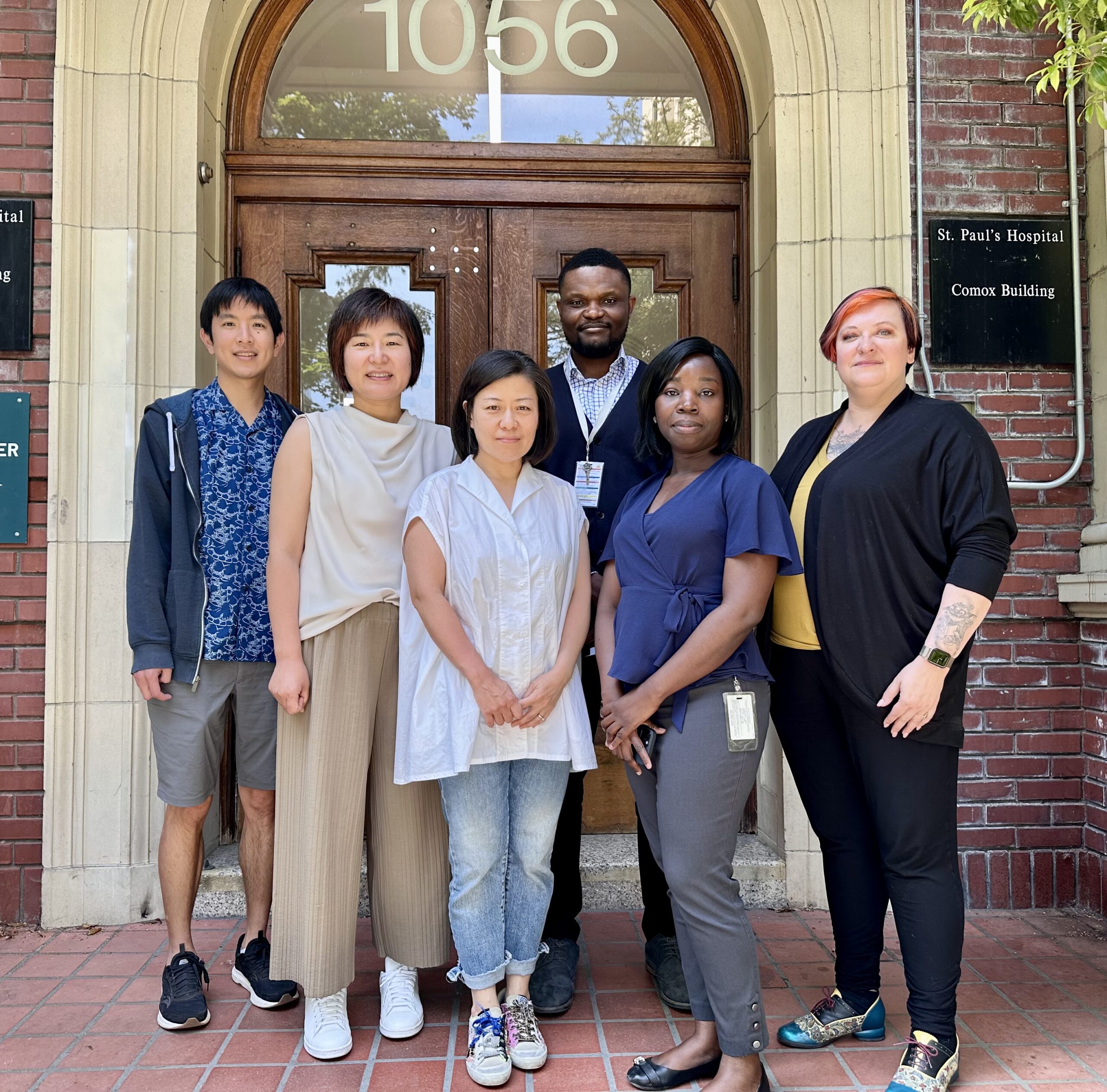Access to timely and stigma-free sexual health care remains a significant challenge for many people, whether it’s long wait times, privacy concerns, or limited clinic access. Advancing Health Research Methodologist Dr. Muyi Iyamu is interested in sustainability of digital healthcare services, especially for sexually transmitted and blood-borne infection (STBBIs).

“During my work as a physician in public health in low-resource settings like Nigeria, I saw how much time and funding went into building digital tools. But many of these tools weren’t sustained or fully integrated into the health system,” said Dr. Iyamu, who is currently completing a postdoctoral fellowship with the CTN+. “This pattern repeated across several digital interventions, and it left me with questions about why promising digital interventions often don’t last.”
A pioneering digital service called GetCheckedOnline caught Dr. Iyamu attention while he was leading digital work for a large PEPFAR-funded HIV program in Nigeria. Since its initial launched 2014, the service has enabled individuals to fill out their information online, provide samples discreetly at a lab, and then receive their STBBI results either online or by phone. Inspired by the program, Dr. Iyamu tried to adapt aspects of it locally, which led to him working with the Dr. Mark Gilbert and the GetCheckedOnline team during his PhD. This experience contributed to his understanding of how a digital health service could reduce barriers to testing for people who are often left out of traditional health systems, especially during the COVID-19 pandemic. His work with Advancing Health’s Drs. Amy Salmon and Mieke Koehoorn found that there was sustained increases in utilization of digital STBBI testing during the pandemic, highlighting the need for accessible and appropriate digital testing. His postdoctoral fellowship project with the CTN+ focuses on understanding what has supported GetCheckedOnline’s longevity thus far, as well as explore what is needed to sustain this service going forward.
“My project uses systems thinking and engages project partners to ask: What does sustainability mean for an equity-focused intervention like this? Who decides what gets sustained, and why?” he said. “Planning for sustainability must begin at the very start of designing and implementing digital health interventions, not after they’ve launched.”
Significance of sustainability
With a flood of digital tools being designed for the health care space, one of the most important factors to consider when building these tools is sustainability. Dr. Iyamu is interested in what tools can be sustained and what integration within the health care system looks like, especially as digital tools often succeed in smaller pilot trials but struggle to stick in real-world settings. The idea is to take the lessons learned from GetCheckedOnline on what sustainability means within the context of digital health tools and how to plan for it.
To Dr. Iyamu, GetCheckedOnline stood out as a rare example of a long-running, publicly funded digital health service in Canada which has made STBBI testing more accessible for many while having limited funding. Despite its success, the program has faced challenges in expanding and adapting the service across the province, highlighting a tension between impact and resourcing. Developing a sustainability plan ensures that the benefits of GetCheckedOnline continue to reach communities affected by STBBIs, especially those underserved by the health system.
“By integrating both quantitative and qualitative methods, my project brings a deeper understanding of sustainability—not as a technical checklist, but as a strategic process rooted in relationships, equity, and accountability,” he said. “The goal is to define a shared vision of sustainability and integration, while also identifying alternative paths shaped by local and system-level context.”
This research also contributes significantly to the academic space, as it adds to the growing conversation about moving digital health tools from testing to integration within routine care. For example, Dr. Iyamu indicated that identifying community-level factors which influence who uses or does not use GetCheckedOnline can help inform the design and scaling of other digital interventions to ensure that they are inclusive, responsive, and sustainable.

Dr. Iyamu with the Advancing Health Evaluation and Health Economics Teams
Designing tools for meaningful impact
As a scientist who has conducted research at the intersection of equity, implementation science, and digital public health for the past decade, Dr. Iyamu recognizes the importance of working with health system partners and the communities they serve. Collaboration is essential when reimagining and delivering long-lasting, equity-focused digital interventions that make a meaningful impact, especially in STBBI care where health care service challenges can be compounded by stigma and discrimination. For example, his recent work, published in Digital Health, described users’ experiences of GetCheckedOnline which identified different barriers and facilitators when using the digital health tool in an effort to promote equitable access.
“My aim is to support a more grounded and realistic vision for digital health. This means asking critical questions about power, access, and who benefits from digital transformation in health care,” he said, “I’m especially interested in shifting the conversation beyond short-term, pilot study-driven approaches toward person-centred, system-integrated solutions that can truly last.”
Although Dr. Iyamu’s current work is with a local digital service provider, he is interested in extending this work into global health settings — particularly in low-resource contexts where thoughtful, equity-driven digital strategies can address real needs and make the most of limited funding. He is also committed to working with the people who can put this research into practice to better inform policy, strengthen community advocacy, and help shape digital health systems that are accountable, inclusive, and responsive to the people they serve, especially as more tools are developed with the intention of being integrated into health care systems.
“My research highlights the less visible conditions that help digital interventions stick, including questions about who is involved, whose voices are heard, and how well services respond to real community needs as well as what operational models are adopted and how these models align with operational mandates and funding models of the organizations involved. These factors are often overlooked but essential to lasting impact.”
Dr. Iyamu wants to embed long-term thinking into every stage of the designing digital health tools, from who is at the table and how success is defined, to how systems and communities are prepared to carry the work forward. Sustainability in developing these tools should not be treated as an afterthought, because there is a real risk of losing the very gains initially set out to achieve, especially for communities who have long been underserved by the health system.


